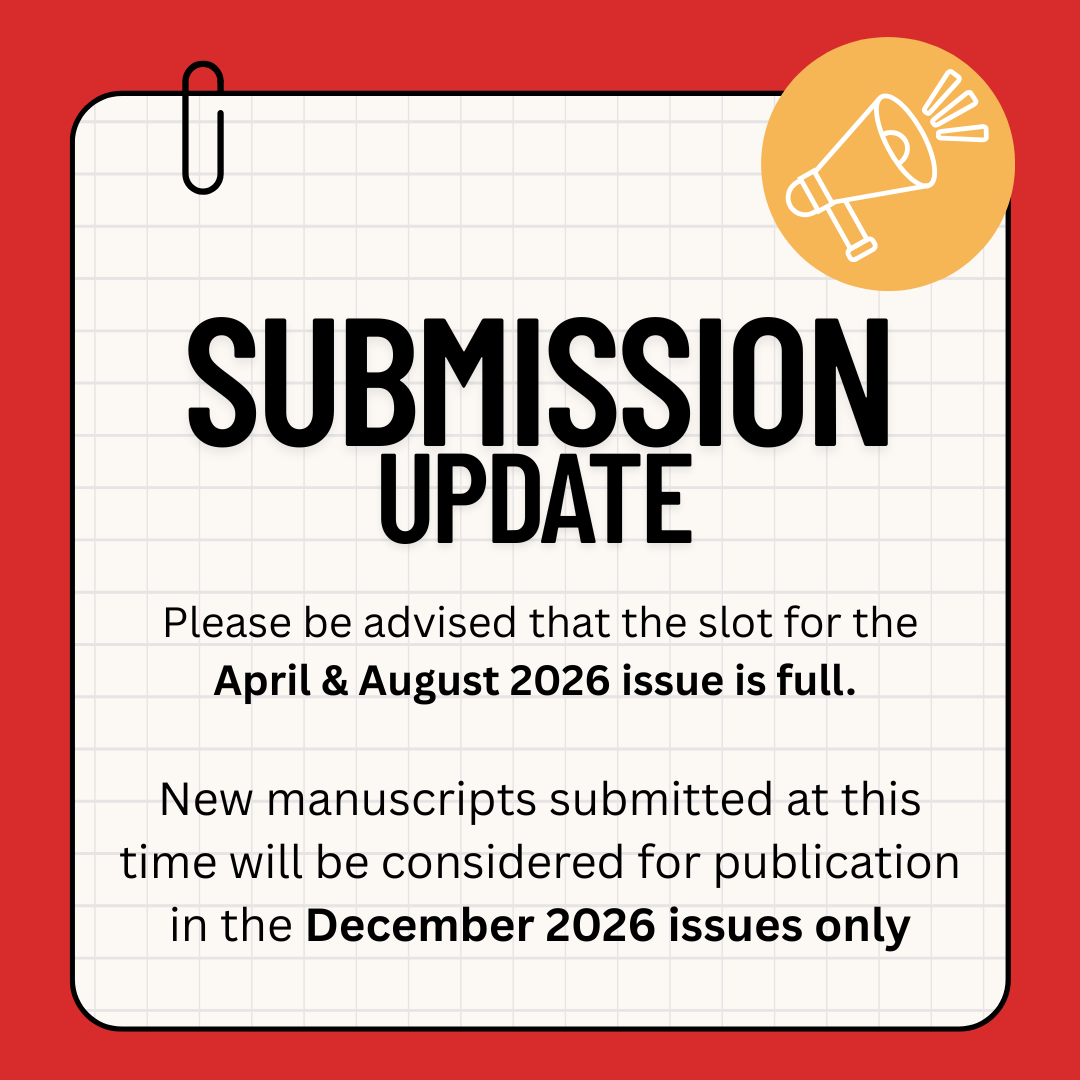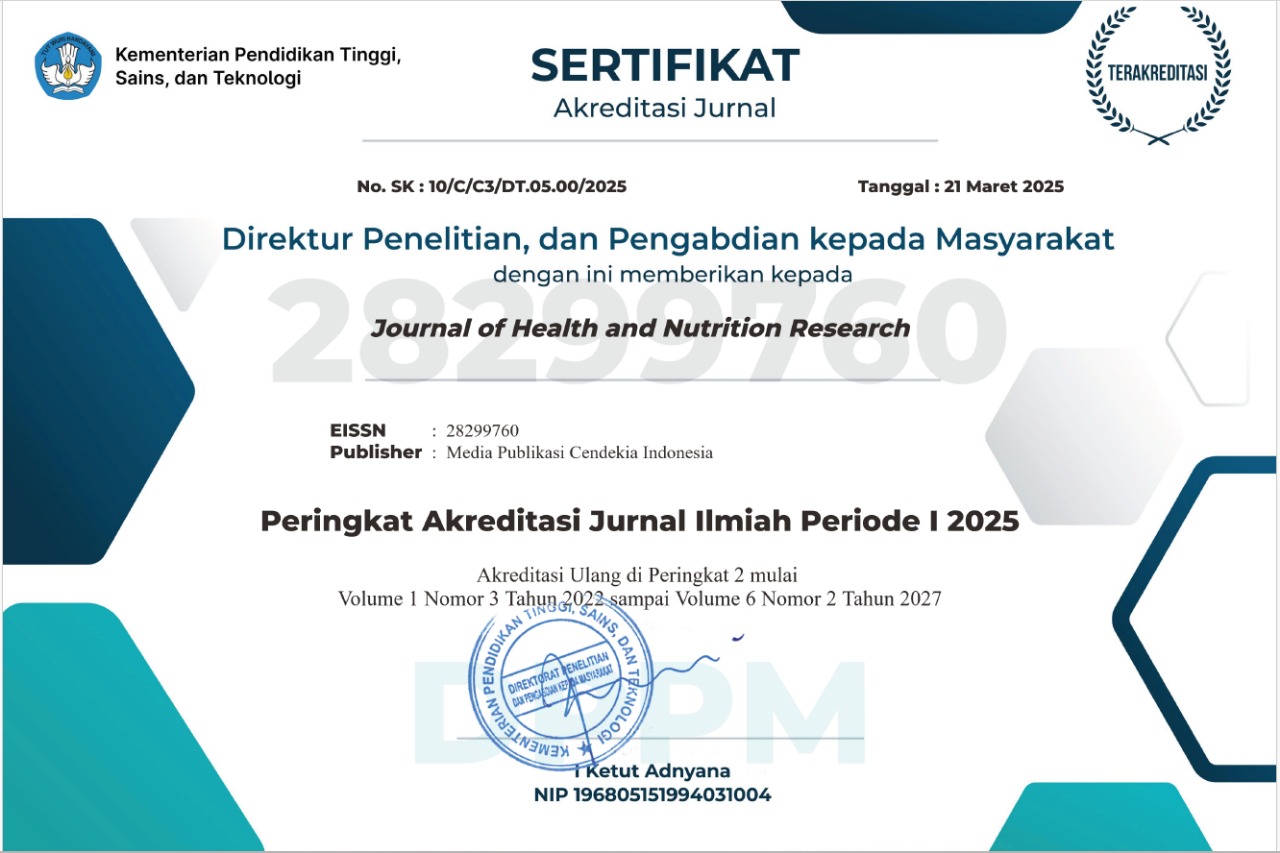Management Behavior Of Rabies-Transmitting Animal (Rta) Bites In The Work Area Of Kawua Health Centre, Poso Regency
Keywords:
Rabies-transmitting animal, Knowledge, Attitude, Role of Health Care Workers, Family SupportAbstract
The Kawua Health Center is one of the health centers in Poso Regency with the highest rabies-transmitting animal (RTA) bite cases in 2019 and is very disturbing to the community. Bites of Rabies Transmitting Animals (RTA) are risky for transmitting the rabies virus to humans, so an effective and efficient response is needed. The purpose of the study was to obtain information on the behavior of handling Rabies Transmitting Animal Bites in the working area of the Kawua Health Center, Poso Regency. Data collection was done by in-depth interviews involving 15 research informants determined by the purposive sampling technique. The results showed that the informants' knowledge was still not good regarding rabies, both in terms of prevention and control of RTA bites. The attitude of the informant was not good in carrying out first aid measures and prevention efforts before RTA bites occurred. Also, the role of health workers was not good in preventing and controlling rabies cases in the working area of the Kawua Health Center. Families play an important role in controlling rabies by providing informational, emotional, and instrumental support. It is recommended for the Kawua Health Center staff to improve the prevention and control of RTA bites cases further
Downloads
References
Yousaf MZ, Qasim M, Zia S, Khan M ur R, Ashfaq UA, Khan S. Rabies molecular virology, diagnosis, prevention and treatment. Virol J. 2012 Feb 21;9:50.
Wicaksono A, Ilyas AZ, Sudarnika E, Lukman DW, Ridwan Y. Pengetahuan, Sikap, dan Praktik Pemilik Anjing Terkait Rabies di Kabupaten Sukabumi, Jawa Barat. Jurnal Veteriner. 2018 Sep 7;19(2):230–41.
WHO. Rabies [Internet]. World Health Organization. 2018 [cited 2022 Aug 11]. Available from: https://www.who.int/news-room/fact-sheets/detail/rabies
Kemenkes RI. Kementrian Kesehatan Republik Indonesia. Jakarta: Kementrian Kesehatan Republik Indonesia; 2018.
Dinkes Sulteng. Profil Kesehatan Provinsi Sulawesi Tengah Tahun 2018. Palu: Dinas Kesehatan Provinsi Sulawesi tengah; 2018.
Dinkes Poso. Profil Kesehatan Kabupaten Poso 2019. Poso: Dinas Kesehatan Kabupaten Poso; 2019.
Sitepu FY, Depari E, Afriani A, Sianturi C. Evaluasi program pencegahan dan pengendalian Rabies dalam rangka menuju Sumatera Utara Bebas Rabies 2020. JHECDs: Journal of Health Epidemiology and Communicable Diseases. 2018;4(2):42–8.
Parlin W. Factors Affecting The Incidence Of Rabies Disease In Puskesmas Rejosari Pekanbaru City. Jurnal Ipteks Terapan. 2019 May 15;13(1):12–9.
Abidin A, Budi A. Hubungan Antara Pengetahuan Dan Sikap Terhadap Upaya Pencegahan Penyakit Rabies Pada Masyarakat Di Wilayah Kerja Puskesmas Tomoni Timur Tahun 2020. In Yogyakarta: Universitas Islam Indonesia; 2020 [cited 2022 Aug 11]. p. 32–42. Available from: https://dspace.uii.ac.id/handle/123456789/25874
Kemenkes RI. Buku Saku Petunjuk Teknis Penatalaksanaan Kasus Gigitan Hewan Penular Rabies Di Indonesia. Jakarta: Kementerian Kesehatan RI; 2016.
Jamari EJ, Nurdin F. Faktor Pelayanan Kesehatan, Dukungan Keluarga dan Masyarakat Dengan Upaya Pencegahan Kejadian Rabies di Wilayah Kerja Puskesmas Pandan Kecamatan Sungai Tebelian Kabupaten Sintang. VISIKES: Jurnal Kesehatan Masyarakat [Internet]. 2019 Sep 19 [cited 2022 Aug 11];18(2). Available from: http://publikasi.dinus.ac.id/index.php/visikes/article/view/2300
Ryantini KTD. Analisis Berita Tentang Kejadian Tergigit Anjing Di Bali Dalam Harian Bali Post Berdasarkan Paradigma Formal Dan Fungsional. Stilistika : Jurnal Pendidikan Bahasa dan Seni. 2020;8(2):284–304.
Notoatmodjo S. Promosi Kesehatan dan Perilaku Kesehatan. Jakarta: Rineka Cipta; 2010.
Dilago Z. Penyuluhan dan Pelaksanaan Vaksinasi Rabies di Desa Tagalaya Kecamatan Tobelo. Jurnal Pengabdian Masyarakat: Darma Bakti Teuku Umar. 2019 Dec 31;1(1):93–100.
Hasanov E, Zeynalova S, Geleishvili M, Maes E, Tongren E, Marshall E, et al. Assessing the impact of public education on a preventable zoonotic disease: rabies. Epidemiol Infect. 2018 Jan;146(2):227–35.
Matibag GC, Kamigaki T, Kumarasiri PVR, Wijewardana TG, Kalupahana AW, Dissanayake DRA, et al. Knowledge, attitudes, and practices survey of rabies in a community in Sri Lanka. Environ Health Prev Med. 2007 Mar;12(2):84–9.
Published
How to Cite
Issue
Section
Copyright (c) 2022 Firmansyah Firmansyah, Rahma Rahma, Rasyika Nurul Fadjriah, Lusia Salmawati

This work is licensed under a Creative Commons Attribution-NonCommercial-ShareAlike 4.0 International License.
Most read articles by the same author(s)
- Muhammad Ryman Napirah, Vidyanto Vidyanto, Heru Kukuh Prayitno, Hasanah Hasanah, Nur Mila Sari, Rasyika Nurul Fadjriah, The Relationship Between Situational Leadership Style and Motivation with Employee Performance at Kamonji Community Health Center in West Palu District, Palu City , Journal of Health and Nutrition Research: Vol. 3 No. 3 (2024)
- Imtihanah Amri, Rahma Rahma, Gina Andyka Hutasoit, Ayu Sekarani Damana Putri, Haerani Harun, Riyadh Rasyid, Comparison of Neutrophile-to-Lymphocyte Ratio Between Dengue Haemorrhagic Fever and Dengue Shock Syndrome in Pediatric Patients at Anutapura Hospital , Journal of Health and Nutrition Research: Vol. 4 No. 1 (2025)
- Sadli Syam, Putri Maharani Sukirman, Firmansyah Firmansyah, Ayu Lestari, Novi Inriyanny Suwendro, Smoking Behavior Among Adolescents at A Public Junior High School , Journal of Health and Nutrition Research: Vol. 2 No. 3 (2023)
- Lusia Salmawati, Pertiwi Pertiwi, Muhammad Sabri Syahril, Muhammad Aji Satria, Sitti Radhiah, Abd Rahman, Preparedness of Lab School Middle School Students Towards Earthquakes for Disaster Risk Reduction , Journal of Health and Nutrition Research: Vol. 3 No. 2 (2024)
- Musjaya Guli, Muh Akbar Ardiputra, Ramadanil Pitopang, Retno Sari, Mochammad Hatta, Sumarno Reto Prawiro, Andi Saifah, Bambang Sardi, Rahma Rahma, Nurul Dina Rahmawati, The Anticancer Activity of Ethanol Extract of Begonia medicinalis on Colorectal Cancer Rat Model Induced With 7,12-Dimethylbenz[A]Anthracene , Journal of Health and Nutrition Research: Vol. 4 No. 2 (2025)
- Arwan Arwan, Syamsul Arif, Sadli Syam, Muhammad Ryman Napirah, Sendhy Krisnasari, Firmansyah Firmansyah , Novi Inriyanny Suwendro, Bullying Behavior in Generation Z Youth: Case Study at Palu City DP3A Children's Forum , Journal of Health and Nutrition Research: Vol. 2 No. 3 (2023)
- Lusia Salmawati, Marselina, Pertiwi, The Influence of Knowledge, Attitude, and Action on Fire Disaster Preparedness in Palu City Health Center , Journal of Health and Nutrition Research: Vol. 1 No. 3 (2022)
- Arwan Arwan, Sadli Syam, Rasyika Nurul Fadjriah, Sulfiyanti Sulfiyanti, Muhammad Ryman Napirah, Community-Based Intervention: A Case Study of Pantoloan Boya Village Community Through the Rehabilitation Field Program of National Narcotics Agency, Palu City , Journal of Health and Nutrition Research: Vol. 2 No. 2 (2023)
- Muhammad Ryman Napirah, Vidyanto Vidyanto, Rasyika Nurul Fadjriah, Nisa Rohimah, Evaluation of Pregnant Class Implementation in Work Area of Community Health Center , Journal of Health and Nutrition Research: Vol. 3 No. 1 (2024)
- Arwan Arwan, Ashfan Abdan Bayan, Sadli Syam, Herawanto Herawanto, Firmansyah Firmansyah, Adolescent Mental Health During Stay at Home of The Covid-19 Pandemic , Journal of Health and Nutrition Research: Vol. 1 No. 2 (2022)



















